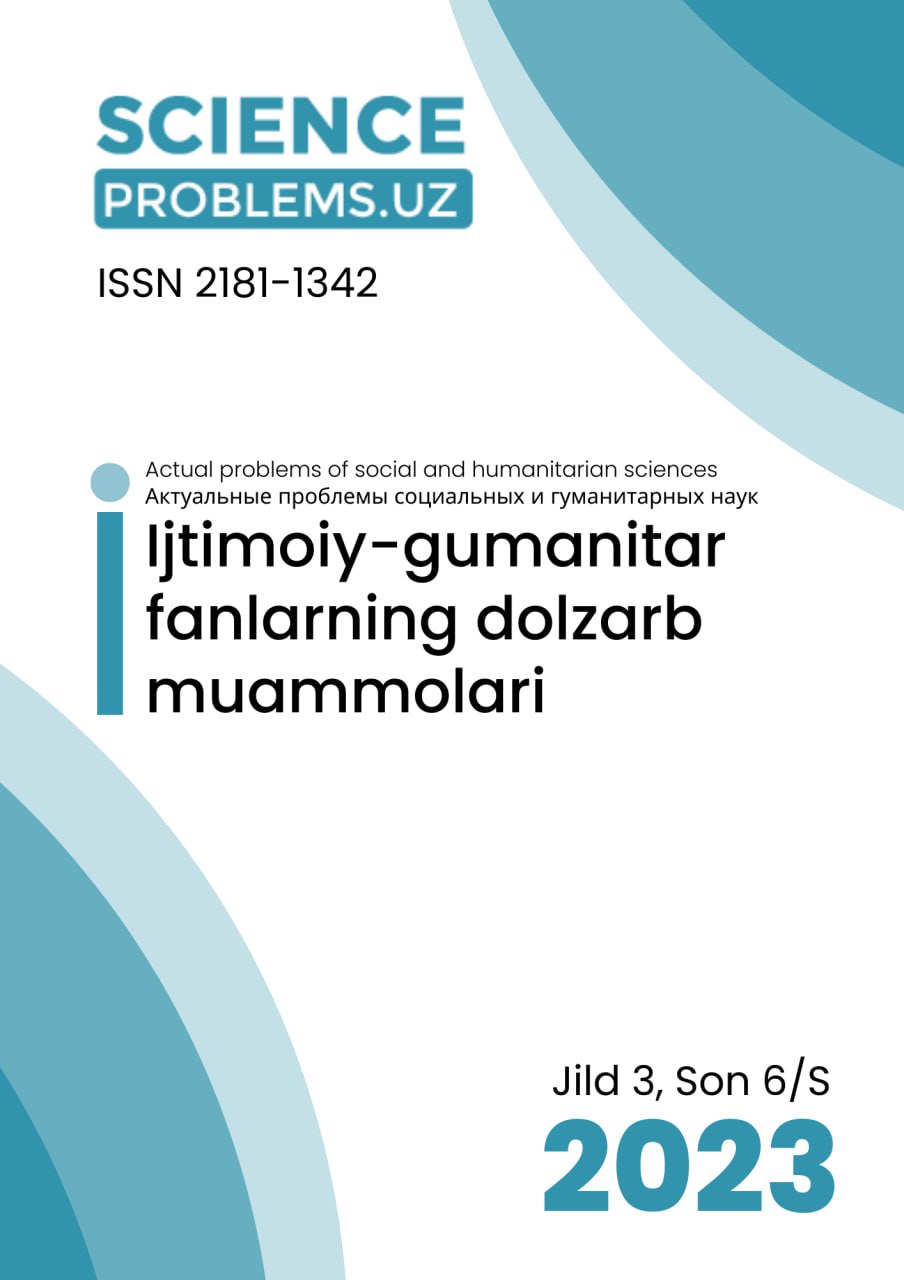UZBEK MENTALITY AND PERCEPTION OF INFORMATION
DOI:
https://doi.org/10.47390/SP1342V3I6/SY2023N24Keywords:
traditions, information, media literacy, media language, mentality, TV presenter, TV journalism, values.Abstract
This article aims to substantiate that, despite the attraction of the youth audience to cosmopolitanism, going to the Internet and social networks, the popularity of television is not decreasing, and the mental attitudes laid down from childhood and transmitted from generation to generation are difficult to be transformed, to analyze the transformations of the journalistic presentation of information to TV presenters from the point of view of the mentality, preservation of the image and national traditions of Uzbek television, developing along its own distinctive path of development, as our TV audience knows it. At the same time, the methods of analysis of theoretical literature, the method of comparative evaluation in terms of identifying the factors of the formation of television speech of local journalists, monitoring the process of transformation of television speech under the influence of various factors, the method of quantitative and qualitative content analysis, as well as the comparative method were used. As a result of the research, we came to the conclusion that Uzbek TV journalism today is in the stage of global changes towards the transformation of consistency, saturation and presentation of journalistic material, efficiency, multimedia and commercialization, while maintaining mentality, «national face» and general cultural conceptuality, creating new communicative processes in the national media space that have a global impact on social consciousness and forms of interaction between cultures of different peoples living in Uzbekistan.
References
Гайдамак Д.А. PR-сопровождение молодежных СМИ Санкт-Петербурга: теоретико-методологические основы исследования. // Известия Уральского федерального университета. Серия 1: Проблемы образования, науки и культуры. 2010. Т. 85, № 6-2. – Спб. – С. 154. (Gaydamak D.A. PR-support of youth media of St. Petersburg: theoretical and methodological foundations of the study. // News of the Ural Federal University. Series 1: Problems of education, science and culture. 2010. Vol. 85, No. 6-2. – St. Petersburg. – P. 154.)
Дюби Ж.. Развитие исторических исследований во Франции после 1950 года// Одиссей. Человек в истории. – М.: Наука, 1991. – С. 52. (Duby J.. The development of historical research in France after 1950// Odysseus. A man in History. – Moscow: Nauka, 1991. – P. 52.
Скоробогацкий В.В.. Россия на рубеже времен: новые пути и старые вехи. – Екатеринбург: Наука, 1997. – С. 168. (Skorobogatsky V.V. Russia at the turn of time: new ways and old milestones. – Yekaterinburg: Nauka, 1997. – P. 168.
Социология: энциклопедия. // Сост. А.А. Грицанов, В.Л. Абушенко, Г.М. Евелькин [и др.]. – Минск: Книжный Дом, 2003. – C. 131. (Sociology: Encyclopedia. // Comp. A.A. Gritsanov, V.L. Abushenko, G.M. Evelkin [et al.]. – Minsk: Book House, 2003. – P. 131.
Israil M. Conceptual, genre-style and pragmalinguistic characteristics of media texts. // Science and innovation. Imternational scientific journal 2 Issue 8 august 2023. UIF-2022: 8.2/ISSN: 2181-337/SCIETISTS.UZ// https://doi.org/10.5281/zenodo.8219261.








